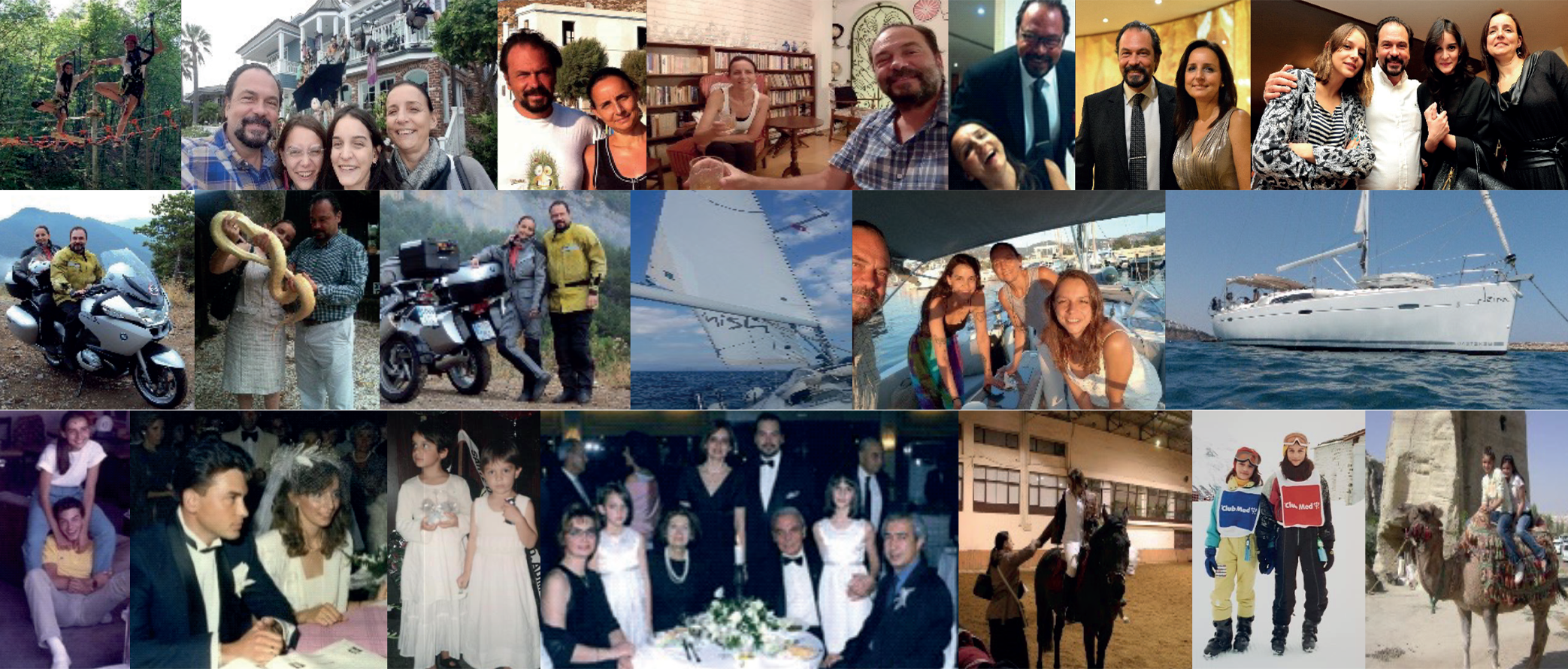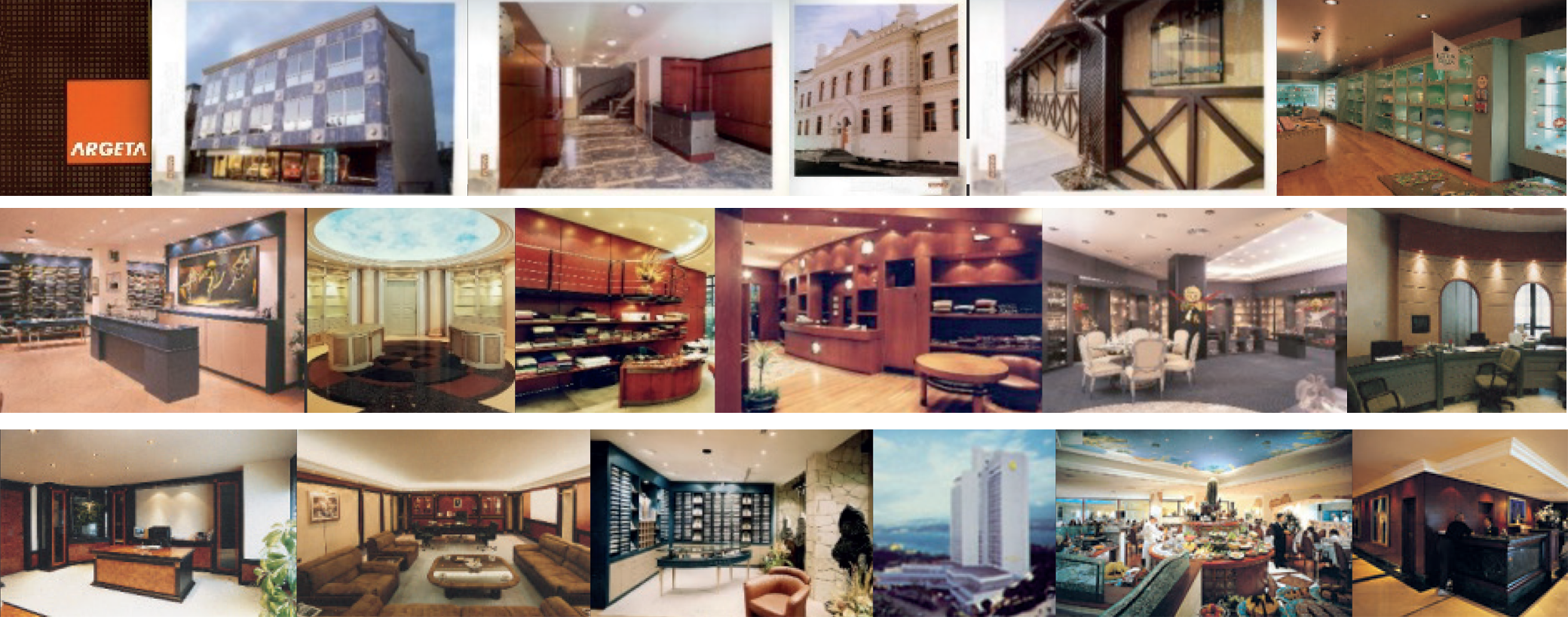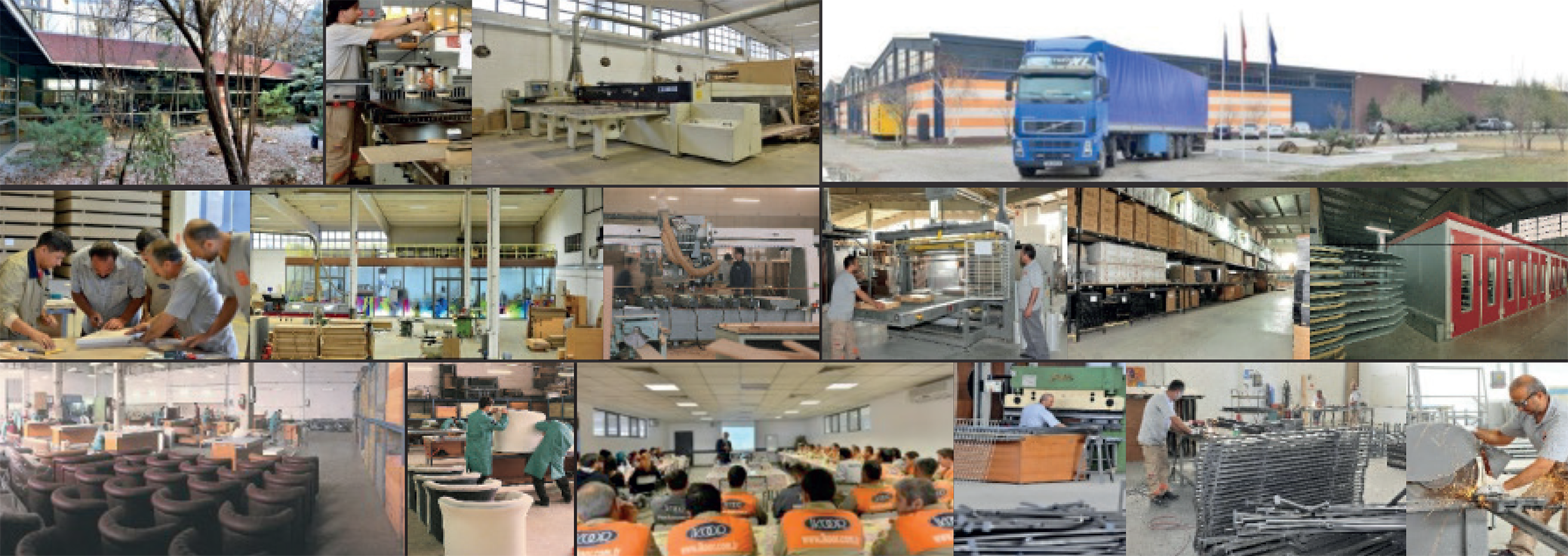About Us


Melih GUN, born in 1964, is the son of Sengül and Yılmaz GUN, both of whom had technical art educations. Yılmaz GUN was a well-known craftsman in the home furniture industry, producing to high quality standards. Melih was raised in an innovative, nourishing environment where he learned the art of furniture through direct experience.
As a child, Melih enjoyed making model planes, cars, puzzles and drawings, probably as a result of his father’s profession. He spent most of his childhood holidays in the workshop, learning about materials and manufacturing, which to him was like a game. He was blessed with chances only a few children get; he had the opportunity to cut, assemble and paint his toys, sleds, gadgets... He had the chance to translate his childhood imaginations into material entities; such freedom to think and create allows a person the ability to decide what he wants. He graduated from TED Ankara College in 1981. Curiosity and interest are the most important elements that enable people to learn. For Melih choosing industrial design in METU was a natural and easy decision. Having grown around real-life applications of what he was studying helped Melih to be successful, understanding and internalizing his education in a fast and fruitful way.

1975 yılında Melih’in babası aile işletmesi GÜN MOBİLYA’yı üretim atölyelerini kapatıp üretimi taşeron atölyelere devrederek prestijli bir mobilya mağazasına dönüştürdü. 1981-1985 yılları arasında üniversite yıllarında Melih ve Ceren bu mağazada yarı zamanlı çalıştılar. İkisi de Mimarlık Fakültesi Endüstriyel Tasarım Bölümü’nden yüksek onur derecesiyle mezun oldular ve mezuniyetlerinden sonra birlikte çalışmaya devam ederek yeni tasarımlarla ev mobilyası sektörüne taze bir bakış açısı getirdiler.

Melih served his military duty between 1985 and 1987 in his hometown Ankara, which allowed him to continue the business and get married to Ceren in 1986. Between 1987 and 1993 they were in charge of the family business and throughout this period they came a long way in the boutique luxury home furnishing sector. They expanded the business, added new offices and display floors to the store and carried out new designs.

Their family grew with the birth of their two daughters. Beril was born in November 1989 and İdil in October 1991, both in Washington DC. Beril studied law; İdil studied mechanical engineering and mastered in computer science. The GUN family loves to be in nature; they are a venturesome family with hobbies such as skiing, motorbiking, and sailing.

PROFESSIONAL SOCIAL RESPONSIBILITY PROJECTS
Melih, as a part of the Industrial Deisgners’ Society of Turkey (ETMK), is among the founders of non-governmental organizations in the furniture industry, such as OMSİAD (Office Furniture Industry and Businessmen Association) and MUDER (Kitchen and Bathroom Furniture Industrialists and Importers Association). Mindful towards his social responsibilities, he took on various duties in organizations such as TÜGİAD (Young Businessmen Association of Turkey), Ankara Chamber of Industry, Turkish Exporters Assembly, and Central Anatolian Exporters’ Union. He has also taken part in the commissions of various furniture design competitions, been a part of many school presentations that enlighten the young generations about the sector, and has carried out important appointments for the overall development of the sector.


STUDENT PROJECTS
Melih and his team support student’s graduation projects in all steps such from design processes to detail solutions, mock-ups to production, within the framework of university-industry cooperation.
As sponsors, they contribute to the fact that the projects developed with these events are instructive, promoting the profession and encouraging creativity for all audiences.

1987, when Melih had just started his business, was a time when new and luxury hotels were being built. For instance, Ankara Hilton’s construction and purchases were being made under the management of a Swiss team. Melih and Ceren, being multi-lingual, having a design education, having a background in high-quality manufacturing, and having interdisciplinary experiences opened the doors to such jobs.
During the Ankara Hilton project, the only manufacturing facility they had was a polishing workshop which they had opened a year ago. This led to a challenging period. All products for contract production were first drawn, prototypes were manufactured in subcontractor workshops, moved on to the approval stages and finally the products were stored in various warehouses. It seemed that they needed a bigger area with workshops of their own.
By 1987, school and military service were over; Ceren and Melih were married and ambitious about work. They were young and excited.
They were designing new models, attending fairs; besides manufacturing and selling home furniture they were also taking on hotel projects growing their company. Between 1989 and 1994 contract projects continuously grew in number, with few competitors in the market. Business was good and their turnover kept increasing.
By 1987, school and military service were over; Ceren and Melih were married and ambitious about work. They were young and excited.
They were designing new models, attending fairs; besides manufacturing and selling home furniture they were also taking on hotel projects growing their company. Between 1989 and 1994 contract projects continuously grew in number, with few competitors in the market. Business was good and their turnover kept increasing.

Due to the challenges of working with subcontractors and the limited spaces warehouses offered, Melih convinced his family and rented a 2000 sqm workshop with furniture, metal, and furnishing areas, that would operate between 1989 and 1994. In 1991, they expanded their work to İstanbul with GünProta Co. Ltd.



The fact that they were offering designs and detail solutions for the complete project created a great market opportunity. In 1993. they started turnkey projects under their new company Argeta. Their high quality and fast design solutions created a demand for them to undertake construction works as well. They completed many design&build type projects. Working with construction projects created the base and confidence for the idea of building their own factory.

Melih’s parents believed production to be risky for business and were not content with the new branched structure. The new generation’s different way of doing business, contract works, and their desire to produce contradicted the Gün Furniture brand, which sold prestigious home furniture while handling manufacturing via subcontractors. These factors led to divergence in the perspectives and future plans of the parties.
Around the end of 1993 and the beginning of 1994 Melih and Ceren decided to grow their business that had operated at a workshop since 1989 and build their own factory under their own and new brand IKOOR. This marked the date when their business was separated from the family’s transforming into something new and exciting, enriched by the cultural inheritance of the family business. They bought the land, and started the construction with loans and exchanges within their network of contractors and craftsmen.
In 1994, Melih established Pronet in Moscow with three other partners selling building materials, and undertaking renovation and turnkey projects. The market in Russia was growing and Melih wanted to use his extensive know-how from Günofi, Günprota, and Argeta in this developing market. However there were problems within the newly established Russian system while the market in Turkey was prospering. Pronet was closed out in 1998 and the focus was once again the Turkish market.

IKOOR started its operation in 1994, in its factory in Akyurt with 12.000 sqm closed area and computer-controlled machines focusing on contract projects, and producing kitchen, office and home furniture. They grew into a successful team, offering creative production solutions.

IKOOR initially flourished in the office furniture market and in 1995-96 the kitchen industry got their attention. It was a time when business was accelerating.
IKOOR initially flourished in the office furniture market and in 1995-96 the kitchen industry got their attention. It was a time when business was accelerating.
The company continued its steady growth until 1997. After their separation from Gun Furniture they had stopped doing residential works. During this period they attended qualified expositions, gave office and kitchen dealerships and had up to 16 dealers, and climbed to a prestigious position raising great interest with their brand new products.

On the other hand, the construction market in Turkey was also growing. Between 1998 and 2001 ARGETA took on projects for TURKCELL in different cities such as Ankara, İstanbul, and Balıkesir, completing various buildings for them such as powerhouses and call centers.

2001 marks the peak of an important economical crisis in Turkey, leading Melih and Ceren to the idea of establishing a company in China. Thus it would be possible bring together the design and production opportunities they had in Turkey with China’s production capacity. CDF (Contract Design Factory) was established in 2003, in Hong Kong, operating for a decade. During this period they tried to establish a hybrid structure that would eventually open to the American market.

In 2005 Sanset IKOOR was established conducting both production and product. They completed several large turnkey hotel projects such as Mercure Hotels, Merit Hotels and Accor Novotel and Ibısh hotels.
PROFESSIONAL SOCIAL RESPONSIBILITY PROJECTS
2014-16 PRO-CNC-SP Project
RO-CNC is a project that aims to raise professionals for using CNC machines efficiently with a deep knowledge and a strengthened sense of problem solving while proposing to renew the curriculums in hand adapting them to future expectations. Within the scope of the project, it is aimed to do an analysis to determine the current situation of the sector in Turkey and the training needs of CNC operators by reviewing the current practices in the European Union. CNC education targets to develop digital skills up to the intermediate level that enable digital literacy learners to be a part of the operating community in Information and Communication Technologies (ICT) professions. It develops their skills by accessing the information they need, problem solving and sharing. These skills are also accepted as basic skills in digital economies where productivity, creativity and sustainability are discussed at the ICT level.

